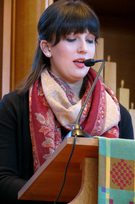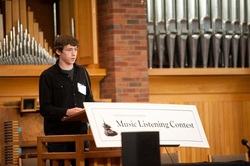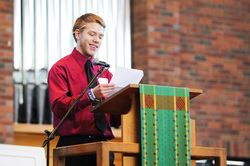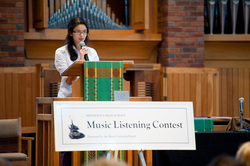Scholarship Essay Competition
NOTE: The deadline for submission this year will be January 30, 2015.
Each year, the Minnesota High School Music Listening Contest sponsors a $500 Scholarship Essay Competition to help further the post-secondary education of an MLC participant. The competition is open to any high school senior (12th grade) who is currently participating in this year's MLC program More details about the 2014-15 Scholarship Essay Competition will be posted here in August.
NOTE: The deadline for submission this year will be January 30, 2015.
Each year, the Minnesota High School Music Listening Contest sponsors a $500 Scholarship Essay Competition to help further the post-secondary education of an MLC participant. The competition is open to any high school senior (12th grade) who is currently participating in this year's MLC program More details about the 2014-15 Scholarship Essay Competition will be posted here in August.



